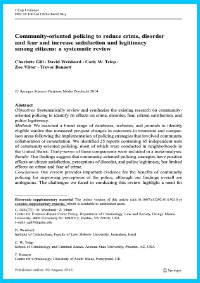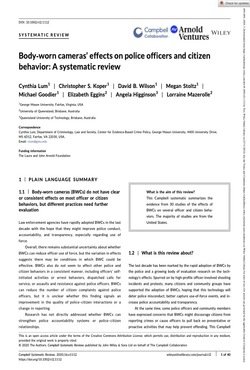By Elle Wadsworth, Mafalda Pardal, Lucy Strang, Laura Atuesta, Fin Oades, Emily Hutton, Eric Sevigny, Emily Lawso
The report concludes with reflections and implications from this review’s findings (Chapter 6), as follows:
Overall, the available evidence suggests that drug-related law enforcement activities are of limited effectiveness in reducing violence. Indeed, more studies demonstrated an association between drug-related law enforcement activities and increased violence than decreased violence. Selective enforcement tactics appeared the most promising in their capacity to reduce violence, although the evidence base covered in this review is limited.
Passive drug-related law enforcement activities, such as increasing police presence in known drug market areas, appear promising in reducing violence. However, less evidence is available on the effectiveness of these interventions than on active law enforcement activities.
The causal mechanisms of violence reduction are under-explored in the literature. However, several studies discussed supply disruptions, focused deterrence and positive relationships between police and communities as potential success factors.
Barriers to the effectiveness of violence-reduction efforts included the resilience of drug markets, the cultural significance of violence in some drug trafficking organisations, and law enforcement’s limited resources.
This review did not identify any UK-based evidence – most research came from the Americas. While most law enforcement activities in this review also occur in the UK, the results are not directly replicable in a UK setting.
Evidence on the relationship between drug-related law enforcement and serious violence and homicide over the last decade is lacking. What was previously effective (or ineffective) in reducing violence may yield different results now.
More evidence is needed on the effectiveness of drug-related law enforcement activities in retail-level markets or prison settings in reducing violence.
Relevant agencies planning and implementing drug-related law enforcement activity should consider the risk of increased violence, particularly for interventions for which available evidence suggests a strong association (for example, leadership removal and seizures).
Future UK research on drug-related law enforcement and violence could focus on interventions that may reduce violence, such as selective enforcement, and whether the findings presented can be validated.
London: Home Office, 2025. 63p.






